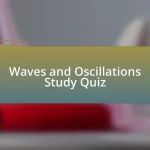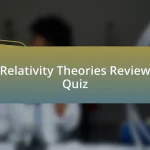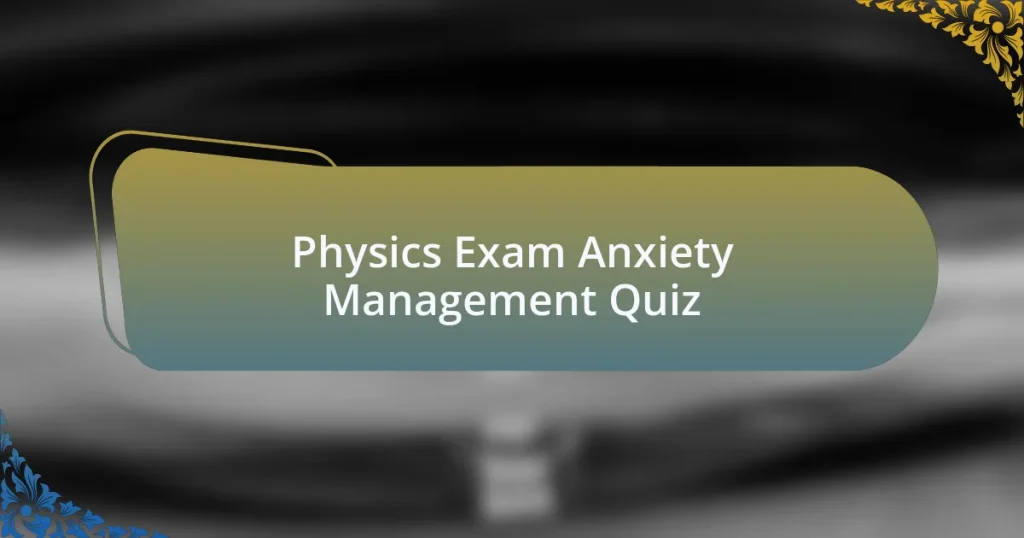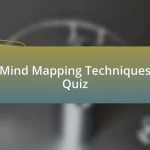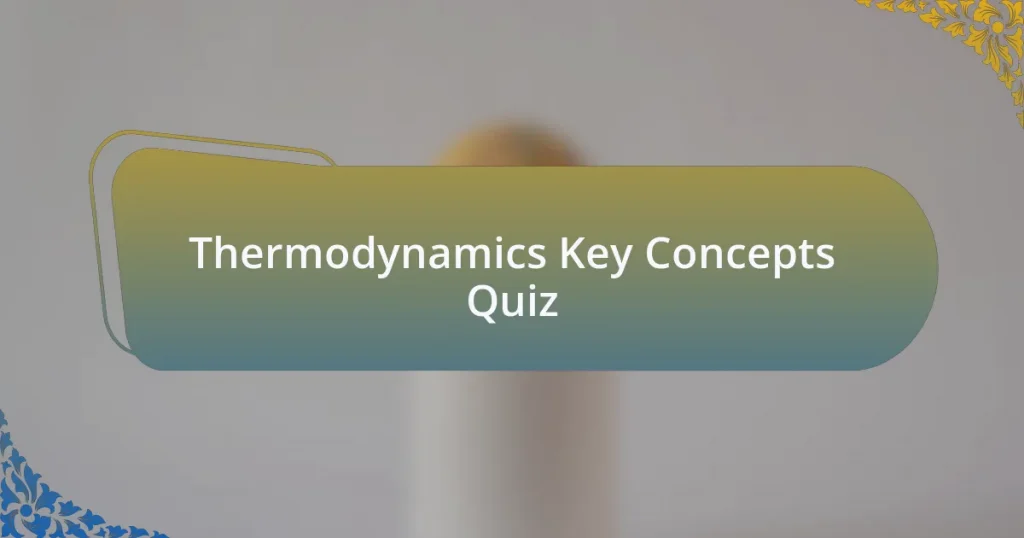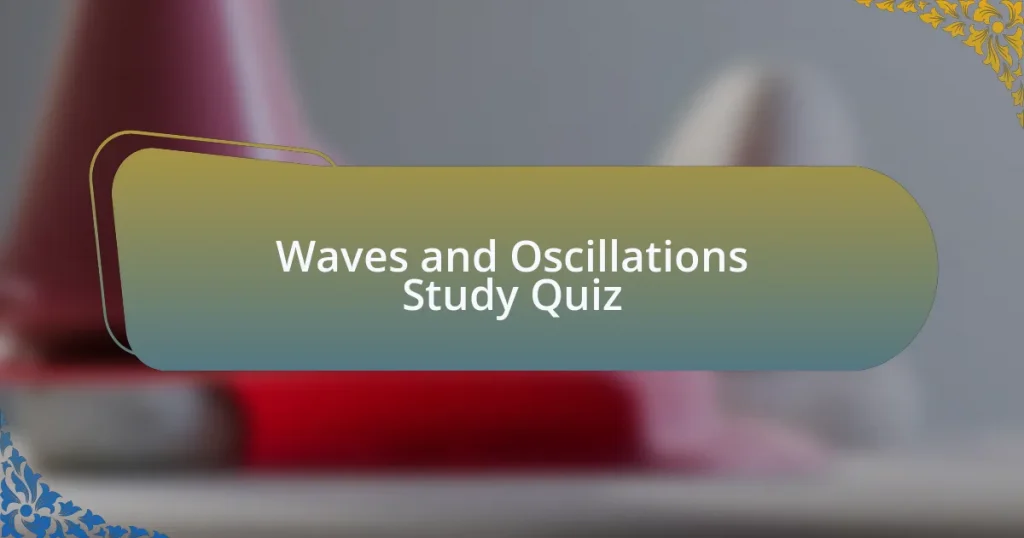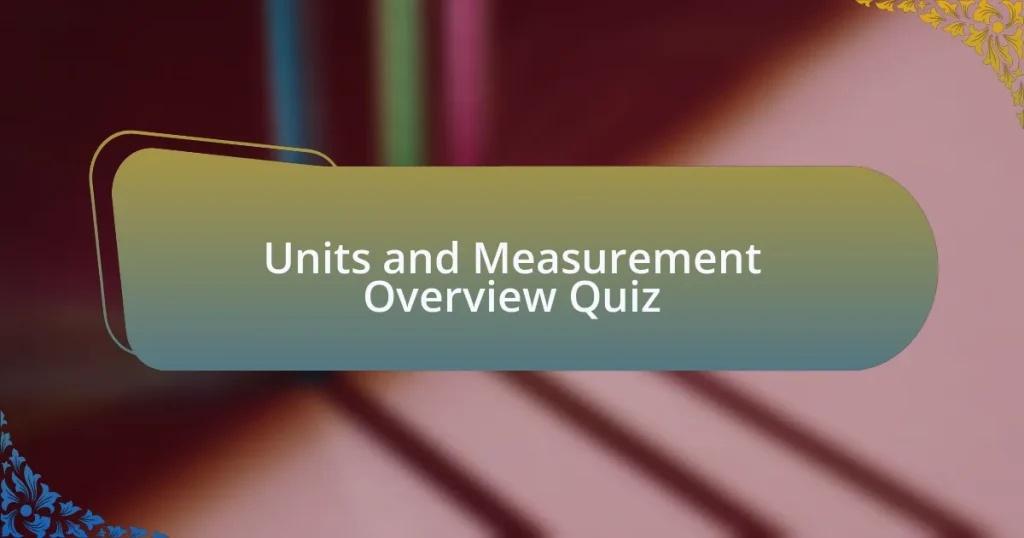Start of Physics Exam Anxiety Management Quiz
1. What is one strategy to manage test anxiety before an exam?
- Cramming all the material just before the exam to ensure you`re prepared.
- Arrive early at the exam hall to avoid last-minute stress and give yourself ample time to settle in.
- Skipping breakfast to keep your stomach light for the exam.
- Ignoring your feelings and hoping they go away on their own.
2. How can physical activity help manage test anxiety?
- Physical activity increases anxiety and makes it harder to concentrate.
- Physical activity can help burn off adrenaline, which blocks the brain from thinking and triggers a flight/fight response.
- Physical activity has no effect on test anxiety and should be avoided before exams.
- Physical activity only distracts from studying and does not help manage anxiety.
3. What is a technique to reduce physical symptoms of anxiety during an exam?
- Skipping meals
- Deep breathing
- Listening to loud music
- Excessive caffeine
4. How can visualization help manage test anxiety?
- Visualization makes you more anxious by focusing on negative outcomes.
- Visualization involves creating a calming scene in your mind, which can help reduce anxiety.
- Visualization distracts you from studying, increasing test anxiety.
- Visualization requires expensive equipment and cannot be done alone.
5. What is the role of positive self-talk in managing test anxiety?
- Positive self-talk has no effect on anxiety levels during tests.
- Positive self-talk distracts from studying and lowers performance.
- Positive self-talk helps to strengthen confidence and reduce anxiety.
- Positive self-talk increases feelings of inadequacy before exams.
6. How can mindfulness training affect test anxiety?
- Mindfulness training has no effect on test anxiety levels.
- Mindfulness training increases the chances of poor performance.
- Mindfulness training distracts students during exams.
- Mindfulness training helps students recognize and manage anxious thoughts.
7. What is the benefit of starting with confident questions during an exam?
- Answering the hardest questions first ensures a good score.
- Focusing on random questions reduces overall exam anxiety.
- Ignoring familiar questions leads to better time management.
- Starting with confident questions boosts morale and settles nerves.
8. How can desensitization help manage test anxiety?
- Desensitization involves recreating the anxiety-producing situation and using techniques like visualization, meditation, or progressive relaxation to combat anxiety.
- Desensitization requires ignoring all feelings of anxiety during the test.
- Desensitization means completely avoiding any practice exams or stressful situations.
- Desensitization is solely focused on altering study habits without addressing anxiety.
9. What is the importance of emotional regulation in managing test anxiety?
- Emotional regulation helps maintain a calm state, reducing test anxiety.
- Emotional regulation is irrelevant to test performance or outcomes.
- Emotional regulation only benefits social interactions, not exams.
- Emotional regulation increases test anxiety due to overthinking.
10. How can progressive relaxation help manage physical stress during an exam?
- Progressive relaxation increases adrenaline levels, making students more alert and focused during tests.
- Progressive relaxation guarantees perfect scores by eliminating all test-related worries and concerns.
- Progressive relaxation involves tightening and relaxing different muscle groups to release physical stress, helping to reduce muscle tension and promote relaxation.
- Progressive relaxation enhances memory recall during an exam, improving test performance significantly.
11. What is the role of attentional regulation in mindfulness training?
- Attentional regulation enables multitasking and decreases the need for concentration in mindfulness training.
- Attentional regulation distracts individuals from focusing on their thoughts during mindfulness training.
- Attentional regulation has no impact on stress levels during mindfulness training sessions.
- Attentional regulation helps improve focus on tasks and manage distractions during mindfulness training.
12. How can a pre-exam routine help manage test anxiety?
- A pre-exam routine can include activities like deep breathing, positive self-talk, and light exercise to help students stay calm and focused before the exam.
- A pre-exam routine means avoiding any form of relaxation to keep your energy high.
- A pre-exam routine requires ignoring any distractions, even if it causes stress or anxiety.
- A pre-exam routine should involve cramming all the content the night before to ensure you remember everything.
13. What is the impact of diet on exam performance?
- Diet can significantly affect exam performance as a good meal can keep students energized and focused, while anxiety can make it difficult to stomach food.
- Eating before an exam only increases anxiety and does not help performance.
- Diet has no impact on exam performance; studying is all that matters.
- A high-sugar diet improves concentration and leads to better exam results.
14. How can music help manage pre-exam nerves?
- Studying late into the night can ensure all material is covered.
- Playing video games can distract from exam stress quickly.
- Listening to a favorite playlist can help soothe pre-exam nerves and boost mood.
- Eating heavy meals before the exam can motivate more energy.
15. What should you do if you start to panic during an exam?
- List all the things you forgot to study.
- Use deep breathing techniques to calm yourself down.
- Leave the exam room immediately.
- Start pacing around the room.
16. How can visualization techniques be used during an exam?
- Visualization techniques can replace studying for an exam by imagining knowledge.
- Visualization techniques can help reduce anxiety by creating a calm mental image.
- Visualization techniques can be used to cheat during an exam by remembering answers.
- Visualization techniques are used to memorize complex formulas without writing them down.
17. What is the benefit of using mindfulness-based interventions in managing test anxiety?
- Mindfulness-based interventions create distractions during the exam.
- Mindfulness-based interventions help regulate attention and emotions.
- Mindfulness-based interventions increase stress and anxiety levels.
- Mindfulness-based interventions have no effect on test anxiety.
18. How can progressive relaxation be used in the classroom?
- Progressive relaxation is primarily used for enhancing memory retention.
- Progressive relaxation can distract students from their studies.
- Progressive relaxation can increase tension and anxiety in students.
- Progressive relaxation can help reduce physical stress in students.
19. What is the relationship between mindfulness and emotional regulation?
- Mindfulness training can positively predict emotional regulation, helping students manage intense emotional experiences like test anxiety.
- Mindfulness has no relation to emotional regulation and does not affect anxiety levels.
- Mindfulness only helps with physical symptoms and does not influence emotional responses.
- Mindfulness increases anxiety by drawing attention to negative emotions and thoughts.
20. How can desensitization be practiced to manage test anxiety?
- Desensitization uses visualization to confront anxiety.
- Desensitization emphasizes avoiding all practice tests completely.
- Desensitization requires studying continuously without breaks.
- Desensitization involves ignoring all exam-related stressors.
21. What is the impact of attentional regulation on mindfulness training?
- Attentional regulation has no impact on mindfulness training.
- Attentional regulation makes it harder to concentrate during mindfulness training.
- Attentional regulation enhances the ability to maintain focus during mindfulness training.
- Attentional regulation distracts from the benefits of mindfulness training.
22. How can a support network help manage test anxiety?
- A support network is not useful for managing anxiety during exams.
- A support network can increase anxiety by putting pressure on students.
- A support network can help students address areas of concern, such as inadequate preparation, by providing emotional support and guidance.
- A support network can only distract students from studying effectively.
23. What is the role of negative thoughts in test anxiety?
- Negative thoughts have no impact on test performance or anxiety.
- Negative thoughts only affect students who are poorly prepared.
- Negative thoughts can create a sense of inadequacy and failure, increasing anxiety levels.
- Negative thoughts enhance confidence and reduce anxiety during tests.
24. How can visualization techniques be used to manage test anxiety?
- Visualization techniques require advanced technology and cannot be practiced alone.
- Visualization techniques can help manage test anxiety by creating a calming mental scene to focus on.
- Visualization techniques are ineffective and can increase anxiety before an exam.
- Visualization techniques can only be used after the exam to reflect on performance.
25. What is the benefit of using positive self-talk during an exam?
- It encourages negative thoughts about performance.
- It increases the time spent on each question.
- It promotes confidence and reduces anxiety.
- It distracts from the exam questions.
26. How can deep breathing help manage physical symptoms of anxiety during an exam?
- Deep breathing can make you tired and unfocused.
- Deep breathing causes hyperventilation and increases anxiety.
- Deep breathing can help calm nerves and increase oxygen flow to the brain.
- Deep breathing distracts from concentrating on the exam questions.
27. What is the impact of mindfulness training on attentional regulation?
- Mindfulness training worsens attentional regulation.
- Mindfulness training can positively predict attentional regulation.
- Mindfulness training has no impact on attentional regulation.
- Mindfulness training distracts from attentional regulation.
28. What should you do if you feel yourself panicking during an exam?
- Close your exam paper and leave the room.
- Distract yourself with your phone.
- Try deep breathing techniques to calm down.
- Freeze and wait for the time to end.
29. How can visualization help manage test anxiety during an exam?
- Visualization creates a stress-free mental scene to reduce anxiety.
- Visualization makes students focus solely on their weaknesses.
- Visualization encourages excessive worry about potential mistakes.
- Visualization sends students into a daydream, causing distraction.
30. What is the role of emotional regulation in mindfulness training?
- Emotional regulation has no impact on test-taking behavior.
- Emotional regulation always leads to perfect test performance.
- Emotional regulation helps students manage intense emotional experiences like test anxiety.
- Emotional regulation creates more anxiety during exams.
Congratulations on Completing the Quiz!
You’ve successfully navigated through our quiz on Physics Exam Anxiety Management! This is a significant step toward not just understanding your own feelings of anxiety, but also learning practical methods to cope with it. By engaging with the material, you may have discovered various strategies to prepare effectively for your physics exams and manage stress. These insights are invaluable as they can transform your study experience into a more positive one.
Throughout the quiz, you likely encountered various tips and techniques designed to help you manage anxiety. From mastering time management to implementing relaxation techniques, each tactic plays a role in boosting your confidence. Understanding how anxiety affects your performance can empower you to take control during those crucial exam times. Remember, the goal is to create a study environment that fosters calm and clarity.
Now that you’ve completed the quiz, we invite you to explore the next section on this page, which delves deeper into Physics Exam Anxiety Management. Here, you’ll find further resources that can enhance your knowledge and equip you with effective strategies. Take the next step in your physics test preparation journey, and let’s tackle that anxiety together!
Physics Exam Anxiety Management
Understanding Physics Exam Anxiety
Physics exam anxiety refers to the stress and apprehension students feel before or during physics assessments. It stems from various factors, such as fear of poor performance, lack of preparation, and the perceived difficulty of the subject. Research indicates that a significant number of students experience test anxiety, which can negatively impact their performance. Understanding these triggers is the first step toward effective management.
Strategies for Reducing Test Anxiety
Reducing test anxiety involves employing strategies like effective time management and organized study habits. Students can create a study schedule that allocates specific time blocks for physics topics. Breaking down the syllabus into manageable sections reduces overwhelm. Regular practice with sample questions also builds familiarity and confidence, decreasing anxiety levels during the exam.
The Role of Relaxation Techniques
Relaxation techniques like deep breathing and mindfulness can significantly alleviate exam anxiety. Deep breathing helps calm the nervous system, allowing students to focus better. Mindfulness, or being present in the moment without judgment, can reduce racing thoughts related to test performance. Implementing these techniques before and during study sessions promotes a more relaxed mindset, improving overall exam preparation.
Building Confidence Through Practice
Confidence plays a crucial role in managing physics exam anxiety. Regular practice through mock exams and problems boosts familiarity with the exam format and types of questions. Engaging in study groups encourages discussion and problem-solving, further enhancing understanding. As students become more adept at tackling physics concepts, their confidence grows, contributing to reduced anxiety levels.
Seeking Support and Resources
Seeking support from teachers, peers, or tutors can be beneficial for managing exam anxiety. Open discussions about challenges faced in physics can provide alternative perspectives and solutions. Additionally, utilizing resources such as online tutorials and study guides enhances understanding of complex topics. Supportive education environments foster resilience, helping students cope with anxiety related to physics exams.
What is Physics Exam Anxiety?
Physics exam anxiety is a psychological condition characterized by excessive worry and stress related to taking physics tests. This type of anxiety can hinder performance, leading to a lack of focus, difficulty with problem-solving, and even physical symptoms such as sweating or increased heart rate. Research shows that test anxiety can negatively impact exam scores, with studies indicating that students with high anxiety levels often perform significantly worse than their less anxious peers.
How can students manage Physics Exam Anxiety?
Students can manage physics exam anxiety through a combination of relaxation techniques, effective study strategies, and practice exams. Techniques such as deep breathing, mindfulness, and visualization can reduce stress levels. Additionally, developing a structured study plan that includes regular reviews, mock tests, and collaborative study groups has been proven to enhance understanding and increase confidence. According to educational psychology, these strategies can significantly lower anxiety and improve test performance.
Where can students find resources for managing Physics Exam Anxiety?
Students can find resources for managing physics exam anxiety through school counseling services, academic workshops, and online platforms. Many educational institutions offer anxiety management programs focused on test preparation. Websites such as the Anxiety and Depression Association of America provide articles and guides specifically addressing exam anxiety. Utilizing these resources can empower students with coping mechanisms and strategies tailored to their needs.
When is it essential to seek help for Physics Exam Anxiety?
It is essential to seek help for physics exam anxiety when anxiety becomes overwhelming and begins to disrupt daily life or academic performance. If students experience persistent feelings of dread before exams, physical symptoms of anxiety, or significant drops in academic performance, reaching out for support is crucial. Professional help, such as therapy or counseling, has been shown to be effective in managing severe anxiety cases.
Who can assist students with Physics Exam Anxiety?
Students can seek assistance with physics exam anxiety from school counselors, teachers, and mental health professionals. School counselors are trained to provide strategies and support for managing academic anxiety. Additionally, physics instructors can offer academic assistance and reassurance through guidance on course material and exam preparation. Studies indicate that having a support system significantly mitigates anxiety and enhances students’ confidence during exams.

